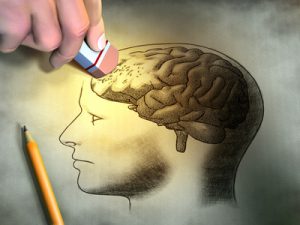Getting a diagnosis of dementia
The importance of getting a diagnosis
We know that seeking a diagnosis can be scary or overwhelming, and some people feel that they’d rather delay finding out. There are four main reasons you should take steps to getting a diagnosis as soon as you can.
- For some people, it can be a relief to know what their condition actually is, and why their memory, behaviour, or the way they feel is changing. A diagnosis also benefits the wider family and enables them to understand what is happening and how they can help.
- A diagnosis helps the person with dementia and their family to get the best treatment, support and plans in place as soon as possible. This includes looking at finances, legal issues and making decisions for the present and the future.
- A timely diagnosis can help the person stay well for longer by increasing their awareness the condition and how they and their family can make adjustments to improve their quality of life.
- Although there is no cure for dementia at present, medication and other interventions can be used to help manage and lessen the symptoms.
How is a diagnosis made?
In the majority of cases, the GP will refer the person with symptoms suggestive of dementia to a memory service, clinic or specialist. However, before they do this they should assess whether the person has an underlying treatable condition, for example, depression, vitamin B12 deficiency, or abnormal thyroid function. In addition, they should also take blood tests, a chest X-ray (if necessary) and also a urine sample to rule out any other physical health issues. They will also briefly test the person’s cognitive abilities by asking the person to:
- state what day and date it is
- name some common items
- remember something to test concentration and short term memory
If all physical or mental health conditions have been ruled out as possible causes of the changes in memory, behaviour and personality, the GP may then refer the person for further investigation. This could be at a memory service (a place for specialist assessment for diagnosing, treating and supporting people with dementia), at a clinic or with a specialist.
The memory service, clinic or specialist should:
- take a detailed medical and family history from the person with symptoms of dementia and confirm the details with a family member. It is helpful if someone who knows the person well goes to the appointment, and has a conversation with the person conducting the assessment to help with this process, or writes a short letter outlining what the issues are.
- test the person’s cognitive abilities by asking specific questions, sometimes called a ‘mental state examination’ or ‘cognitive testing’. These usually include tests of attention, memory, verbal fluency, language and ‘visuospatial’ abilities – in other words, judging the distance between objects. In addition, the memory service, clinic or specialist will ask questions about the person’s abilities with tasks of everyday living such as shopping, household tasks, self care and driving.
- request an MRI or CT scan to examine the structure of the brain.
What if the person won’t visit the GP?
The person may be feeling frightened of getting a diagnosis and may think that they will lose their independence or have to go into care. In some cases, they may not understand that there are concerns about their memory or behaviour and deny they have a problem.
By giving someone reassurance that the symptoms may be due to another potentially treatable condition e.g. physical illness, depression or infection, they could become more willing to visit the GP. If the person simply refuses to go to the GP it is worth remembering that you can contact the surgery to explain the situation. The GP may be able to provide a home visit to speak to the person about their symptoms.
As someone close to them, you could write a letter, telephone or email the person’s GP outlining your concerns. The GP may not be prepared to discuss confidential information with you, but they should welcome relevant information about the person’s current health and concerns.
What if the GP won’t make a referral to a Memory Service or Clinic for a specialist assessment?
If you are experiencing difficulty getting a diagnosis, or if you have questions you can’t get answered, we’ll take the time to really understand the problem, and give you the expert support you need
to tackle it. Please call our Helpline on 0800 888 6678 or email [email protected] to talk through your situation with a specialist Admiral Nurse.
